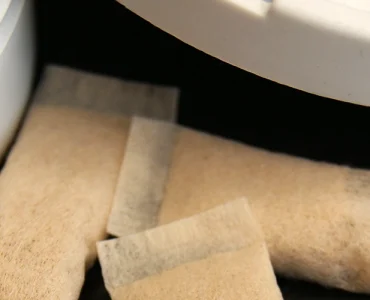Electronic cigarettes as an invention are 20 years old in 2023, and the vaping landscape has changed dramatically in those two decades. From an obscure Chinese gadget that appealed to few, electronic cigarettes and vaping have grown to be a $7 billion-a-year market in the United States alone.
For many people, vaping has been the only thing that has helped them to quit the dirty and harmful smoking habit. Unfortunately, not everyone sees it in the same way, and despite ever-increasing regulations and controls placed on vape products, vaping seems to be constantly under attack. This brings up the question: will vaping ever be banned in the United States?
Although you should never say never, it is unlikely that vaping will be banned nationally in the foreseeable future. It is, however, much more likely to be restricted, either through tighter control on who can produce vapes, bans on flavors, or laws that control nicotine concentrations and the types of devices we can use.
- The sale and use of vapes is legal at the federal level in the United States for anyone over the age of 21. Some states have banned online sales and flavored e-liquids, and many restrict where you can vape in public.
- Every existing and new tobacco product on the market needs to be approved by the FDA before it can be legally sold. Since 2016, vape products have been subject to these Tobacco Control Act regulations.
- Just 23 vape products have been authorized for sale to date, out of millions of Pre-Market Tobacco Applications (PMTAs). Some people have suggested that this is a stealth vaping ban.
- Numerous countries around the world have banned vaping or some vaping products. Although anti-smoking groups are pushing for a ban in the U.S., there is currently no evidence to suggest that this could happen soon.
What is PMTA Approval, and is it a Stealth Ban?
Since 2016, when vape products were grouped with all other tobacco products, the FDA has been taking steps to regulate the industry. This includes requiring any new or altered vape juices, devices, or components to have an approved PMTA (Premarket Tobacco Application).
PMTAs were introduced in 2007 and are seen by many as a way for “big tobacco” to prevent smaller producers from launching products. That’s because PMTAs are overly complicated and incredibly expensive to complete correctly.
Manufacturers need to have a PMTA approved for every product that they want to sell. For example, if a small vape juice company wants to make and sell 50 flavors, it must file 50 PMTAs. Further, if they offer their e-juice in two strengths, they’ll need to file 100 PMTAs.
Regulation is, of course, needed in the vaping industry. But regulation like this, which favors multi-billion dollar companies over smaller manufacturers, seems very unfair. It’s unsurprising to hear that some people, vape manufacturers and consumers, see this as a stealth ban and a way of killing the vape market without actually banning vaping.
Which Vaping Products are Most Likely to Be Banned?
It is unlikely that vaping will be banned outright in America unless found to be significantly more harmful than smoking tobacco (which is unlikely). Even so, it is hard to see how that could happen unless smoking tobacco was also prohibited.
There are, however, some elements of vaping that could see a federal ban in the future.
Flavored Liquids
As we will see below, there are already bans in place on the sale of flavored e-liquid at the state and city level. That doesn’t mean that you can’t vape in those places, but it does mean that you are restricted to buying tobacco, and sometimes menthol, flavored liquids. It would not be surprising to see the sale of flavored e-liquids banned nationally.
High Nicotine Liquids
The United States currently allows the sale of some of the highest-strength vape liquids in the world. There are few countries where you can buy 50mg/ml vape juice, and many have made it illegal to sell anything over 18 or 20mg/ml. The Biden administration has been proposing the introduction of limits on the strength of cigarettes. If these limits come into force, they will almost certainly impact the legal concentration of nicotine in vape juice.
Disposable Vapes
If any individual type of vape device is going to be banned, it will very likely be disposable vapes, a product that has previously accounted for around 40% of vape sales.
Flavored disposable vapes are technically illegal right now, as only a few tobacco-flavored devices have been given FDA approval for sale.
Brands such as Elf Bar and Breeze were required to reapply for FDA approval but did not receive it. It is equally unlikely that a flavored disposable will receive approval in the future, and even tobacco-flavored disposables could be banned at some point.
U.S. Flavor Bans and Other Vaping Restrictions
Although vaping and vape products are federally legal in the United States, their reclassification as tobacco products has made it easier for some states and cities to impose local sales bans and restrictions. More than 370 localities have introduced limitations of some kind on the sale of vaping products.
Several US states have banned the sale of flavored e-liquid (other than tobacco flavors) and several also prohibit online sales of any vaping product.
So far, only San Francisco and a few smaller cities in California have completely banned the sale of all vaping products and made it illegal for vape retailers to deliver to addresses in the city. It wouldn’t be surprising to see other cities, and perhaps states, following suit.
Read more about the high-profile and still contested California Vape Ban to see what could happen in the rest of the country.
In 2021, an amendment to the PACT Act (Preventing All Cigarette Trafficking) was made which specifically makes it harder for those under 21 to buy vaping products online. The amendment was almost certainly due to the increase in young people vaping. This was kicked off by the success of Juul and the explosion of candy-inspired vape juice flavors.
Here are the states and major cities where restrictions have been placed on the vape liquids you can buy, and how you can buy them.
Flavor Bans: States and Major Cities
- California
- Massachusetts (the first state to ban flavored e-liquids in 2019)
- New Jersey
- New York
- Rhode Island
- Aspen
- Boulder
- Chicago
- Columbus
- Los Angeles
- Portland
- Oakland
- Sacramento
- San Diego
- San Jose
Online Sale Bans: States
- Arizona
- Arkansas
- Georgia
- Hawaii
- Maine
- New York
- Oregon
- South Dakota
- Utah
- Vermont
A few states and cities have also enacted online sales bans of flavored e-liquids:
- Rhode Island
- Massachusetts
- Chicago
- Washington DC
On top of these flavor and online sale bans, many states also impose restrictions on where people are permitted to vape. That could include bars and restaurants, enclosed workspaces, and on public transport such as subways and buses.
Will Vaping Ever Be Banned in the UK?
The United Kingdom and the United States each view vaping, and its potential dangers and benefits, differently. In general, the British leadership is much more optimistic about the potential benefits (and less concerned about the risks) than the American government seems to be. There have been some calls lately for disposable vapes and some candy or sweet-flavored e-liquids to be banned, but whether these will ever come into force is uncertain.
There are restrictions on the strength of e-liquid that can be legally sold (20mg/ml), as well as the volume of liquid that can be in devices like disposables (2ml). But vaping is still seen as the lesser of two evils, even if more restrictions are likely to be placed on vaping products in the future.
Smoking costs the NHS (National Health Service) an extraordinary amount of money each year and, while the government is cautious about recommending vapes as a smoking cessation device, it believes that vaping causes far less harm than smoking tobacco and is a viable way to reduce the strain on health services.
It is always hard to answer the open question of whether something will “ever” be banned. The world changes, science advances, and political parties rise and fall from power. But even so, it is unlikely that vaping will be banned outright in the United Kingdom at any time in the foreseeable future.
The Vaping Ban in Australia
The vaping ban in Australia came in two distinct stages. The original ban came into force in October 2021, which made it illegal to obtain any e-cigarette that contained nicotine except through a prescription from a doctor. It also made it illegal to import such products from overseas.
Despite this, vape products, including disposables, remained widely available in independent stores and from black market websites. In May 2023, a ban on “recreational vaping” was introduced to further tighten the laws. This ban also reduced the maximum nicotine allowed in any vape juice, prohibited all non-prescribed disposable vapes, and even banned zero-nicotine vape products.
It seems like a strange decision to say that vaping is dangerous and that nicotine is a poison that needs the same controls as Strychnine and Thallium (known as a Schedule 7 poison in Australia), but at the same time say that vaping can be used to help stop smoking if prescribed by a doctor.
As in the United States, the concern seems to be based on the rise in young non-smokers taking up vaping for recreation rather than for health reasons.
The fact that many Australians are still using disposables and still vaping without a prescription shows how hard imposing even a partial ban can be; and this is in a country that already had some of the strictest tobacco laws in the world.
Countries That Have Banned Sales of Vapes
If the United States does eventually ban the sale and use of vape products, it wouldn’t be alone. There are many countries worldwide where it is illegal to sell vaping products.
Countries that have banned the sale of vapes (but not vaping itself) include:
- Ethiopia
- Gambia
- Hong Kong
- India
- Iraq
- Japan (if containing nicotine)
- Lebanon
- Nicaragua
- Norway (banned until July 1, 2025)
- Oman
- Panama
- Qatar
- Sri Lanka
- Turkey
- Uganda
This list is by no means complete, as we have previously covered where vaping is banned in the world, but it does illustrate the point that vape bans are not a new thing, nor are they reserved for small, authoritarian nations.
Countries That Have Banned the Use of Vapes
The following countries have banned the sale and use of vapes completely:
- Antigua and Barbuda
- Argentina
- Bhutan
- Brazil
- Brunei
- Cambodia
- Hong Kong
- Iran
- Malaysia (Penang, Kedah, johor, Kelantan)
- Maldives
- Mauritius
- Mexico
- North Korea
- Palestine
- Seychelles
- Singapore
- Syria
- Taiwan
- Thailand
- Uruguay
- Venezuela
- Vietnam
Would Banning Vapes Be a Good Idea?
Historically, trying to outlaw things already popular with the general population and which millions rely on usually causes almost as many problems as it solves. Just take a look at alcohol prohibition in the 1920s for a good (or bad) example.
Banning a product that people want only drives it underground and creates a black market that will have little control or regulation. Is it safer to let people use a vape that has had to pass rigorous safety tests, or one put together in some anonymous and unmonitored warehouse?
Prohibiting the sale and use of vapes would also cost the country, at both state and federal levels, a huge amount of money to enforce. Although there is currently no excise tax imposed on vape liquid containing nicotine, other parts of vape production or importation are taxed in certain states, and this would also be lost to the black market in the event of a ban.
The Bottom Line
Will vaping ever be banned in the United States? Although you should never say never, it is unlikely that vaping will be banned nationally in the foreseeable future. It is, however, much more likely to be restricted, either through tighter control on who can produce vapes, bans on flavors, or laws that control nicotine concentrations and the types of devices we can use.










Add comment